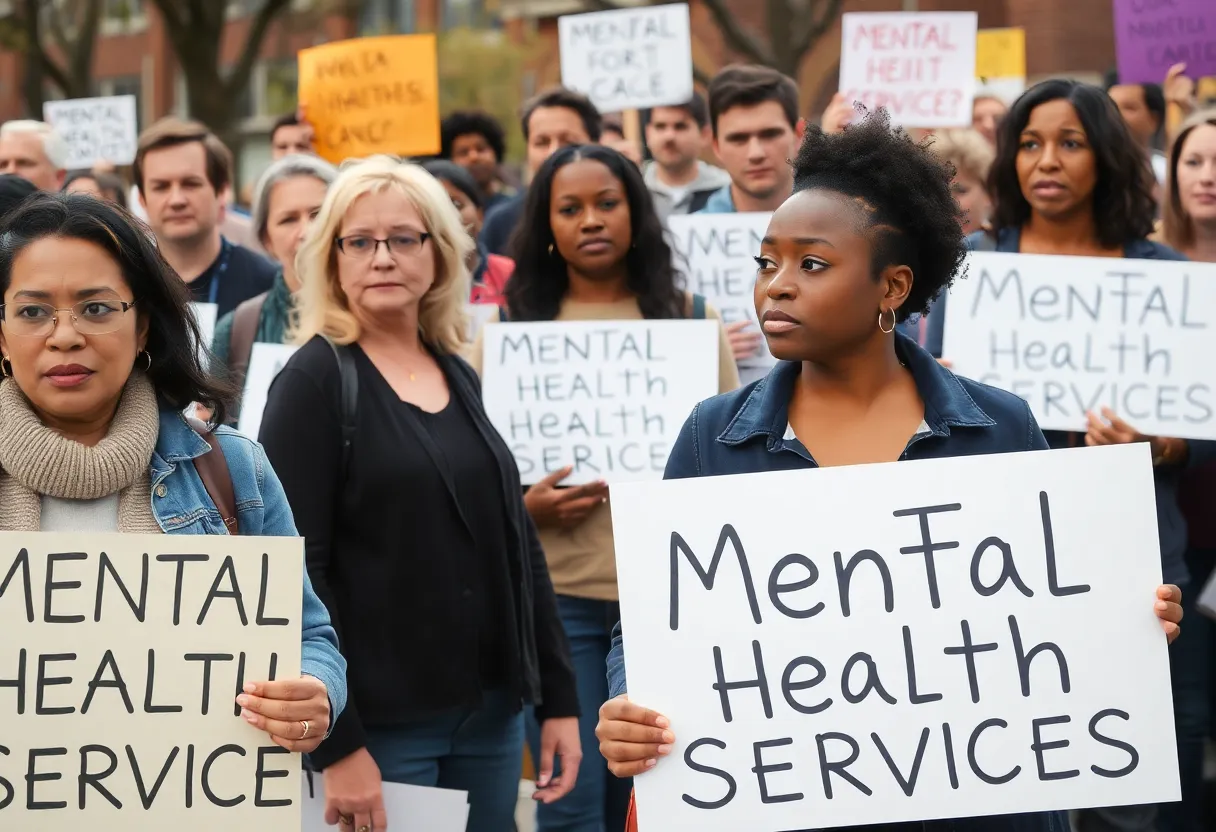News Summary
Governor Maura Healey’s fiscal 2026 budget proposal suggests cutting over $80 million from vital mental health programs, alarming advocates and mental health professionals. The proposed reductions threaten critical services, particularly the only facility dedicated to severe children’s mental health care, potentially ending the vital Three Rivers program. Despite a proposed 7% increase for the Department of Mental Health, advocates argue it’s inadequate to meet rising demand. As structural budget challenges loom, mental health stakeholders emphasize a need for improved access and funding reform.
Governor Healey’s Budget Cuts Raise Concerns Among Mental Health Advocates
The recent budget proposal put forth by Governor Maura Healey for fiscal 2026 has kicked up quite a storm among mental health care professionals and state legislators alike. This budget suggests a hefty reduction of over $80 million from essential mental health programs, causing serious alarm for those who rely on these services, especially for children.
Impact on Specialty Care for Children
The proposed cuts could deal a devastating blow by shutting down the only facility in the state that offers specialized care aimed specifically at children facing severe mental health challenges. Among those sounding the alarm is Tina Champagne, the CEO of Cutchins Programs for Children & Families. If proposed reductions of $15.3 million in the Department of Mental Health budget are not rolled back, the consequences could be dire. This could mean the end of the Three Rivers program, which has provided vital services for over two decades to children aged 6 to 12 and their families.
What is the Three Rivers Program?
Three Rivers is a Clinically Intensive Residential Program located in Belchertown, designed to provide specialized care to young children. It can house up to 12 children at any given time and is funded through the state’s Department of Mental Health. This facility plays a critical role, as seen in the case of a nine-year-old boy, Tay Molnar, whose severe behavioral issues led to his referral to the program. For his family, this program represented the best opportunity to keep their son safe and supported during a challenging period.
Growing Need for Mental Health Services
Even though the state is proposing a 7% budget increase for the Department of Mental Health, many advocates argue that it simply isn’t enough to keep up with the skyrocketing demand for mental health services. Rising costs and the growing need for expanded services are just a couple of reasons why mental health professionals are voicing their concerns. The cuts could decimate residential care programs for adolescents and even impact the community-based mental health services that many depend on. A reduction in funding is also projected to reduce half of the case management positions available for around 7,000 individuals statewide.
The Role of Case Managers
The importance of case managers in the mental health framework cannot be overstated. With the Department of Mental Health having served nearly 29,000 individuals over the past year, including some 4,100 youth, losing these case managers would significantly hinder accessibility to vital mental health services. The proposed cuts to case managers could save about $12 million, but at what cost to the individuals needing support?
The Bigger Picture
Unfortunately, the concerns regarding budget cuts don’t end there. Potential federal Medicaid spending cuts loom, posing a risk of even deeper reductions in mental health funding. The Healey administration’s budget has prioritized funding increases for psychiatric hospitals, yet advocates worry that essential community-based services are being overlooked.
Rising Mental Health Distress
It’s also essential to note that a 2023 mental health survey revealed alarming statistics: nearly half of adolescents and a third of adults in the state reported experiencing psychological distress. As of late March, about 50 children were waiting in hospitals for access to a behavioral health provider bed, which underscores the pressing need for expedited services.
Calls for Improved Access
Concerns about facility closures, such as the Pocasset Mental Health Center—which faced backlash from the public—have heightened the urgency for improved access to care. Advocates argue that instead of slashing funding for these crucial programs, the focus should be on removing barriers that prevent children from receiving timely and effective mental health care.
With ongoing issues like high vacancy rates, a shortage of qualified professionals, and a complicated referral process, the call for reform in the mental health system is louder than ever. Families like that of Tay Molnar should not have to struggle to find essential services that are so critically needed.
Deeper Dive: News & Info About This Topic
HERE Resources
New Training Initiative for Disaster Recovery in Maui
Gilead Sciences Leads in ESG Practices in 2023
Lee Echols Recognized for Marketing Excellence in Healthcare
Hope Haven Women’s Center Opens to Support Women in Need
Community Clinical Services Faces Major Budget Cuts and Staff Layoffs
Michigan Enhances Mental Health Support with New Units
Startups Embrace AI for Growth and Efficiency
The Integration of AI in Social Media Marketing: A New Era of Strategy and Authenticity
Community Tackles Homelessness with COVID-19 Relief Funds
Michigan Schools Face $42 Million Deficit Risk
Additional Resources
- MassLive: Local Legislators Push Back on Proposed Budget Cuts to Mental Health Programs
- Wikipedia: Mental Health
- Eagle Tribune: Opponents Knock Healey’s Youth Mental Health Plan
- Google Search: Governor Maura Healey budget cuts mental health
- Boston Globe: Massachusetts Mental Health Children Cuts
- Google Scholar: Mental health programs in Massachusetts
- CNN: Jarren Duran’s Suicide Attempt
- Encyclopedia Britannica: Mental Health
- Boston 25 News: Gov Healey’s Budget Cuts to Mental Health Programs at Risk Kids
- Google News: Mental health budget cuts Massachusetts







